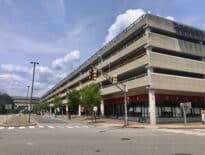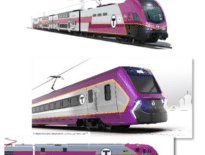The Boston area’s quasi-public regional planning agency and four cities are splitting a $3 million federal grant that’s intended to lay the groundwork for luring a modular housing factory to the area.
The “PRO Housing” grant will let the Metropolitan Area Planning Council, Boston, Cambridge, Everett and Newton research and plan for how to locate a factory like this locally.
Greater adoption of modular construction techniques is widely seen as a necessary step towards lowering housing construction costs in Greater Boston, currently around 20 percent above the national average according to MAPC research, and boosting housing production. At its heart, the approach allows for greater quality control – important to meet the growing tide of stringent carbon emissions building rules – for work on much of a building to proceed independent of the weather and for the actual erection of a building to proceed much faster. Currently a typical multifamily building in Boston takes three years from applying for a building permit to being granted a certificate of occupancy, MAPC said.
Modular techniques have been used in projects totaling over 1,000 units in Massachusetts in recent years according to MAPC research, the largest such project being a 300-unit Brookline mid-rise, but only a small handful of modular housing factories exist in Massachusetts, limiting the construction method’s utility and cost-savings.
“The Greater Boston region, despite its reputation for innovation, has not fully embraced modular and manufactured housing,” said MAPC Executive Director Marc Draisen. “We are seeking to change that curve with this grant and hope to achieve two things that are equally important: more homes and good jobs. It’s important for our homes to be developed quicker, at a lower cost, and with exceptional quality. And we want people who live and work in this region to build and install those homes, which are currently imported from other states and provinces.”
Part of the grant-funded project will also involve coming up with ways to incentivize the use of innovative offsite construction methods and identify ways around obstacles to offsite construction, including potential updates to cities’ land use policies.
“The ability to pay for housing is the greatest fear residents across the Commonwealth face today. All levels of government have to work together to address a problem of this size, scale, and complexity because of the number of families impacted,” Everett Mayor Carlo DeMaria said in a statement. “We need to find more options and there is a real opportunity here to make important progress towards achieving true affordable housing by taking a deep dive into the feasibility of manufactured homes in Massachusetts to help lower construction costs while also providing full-time employment options with competitive wages and benefits in the industry for our residents.”







